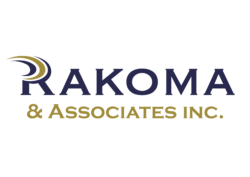Introduction
Fraud can have a devastating impact on businesses of all sizes. It not only results in financial losses but also damages a company’s reputation and erodes customer trust. To combat this growing threat, businesses need to implement effective fraud prevention measures, and one such measure is auditing.
What is Auditing?
Auditing is a systematic examination and evaluation of an organization’s financial records, processes, and controls. It helps identify any irregularities, errors, or fraudulent activities that may be occurring within the company. Audits are typically conducted by internal or external auditors who are trained to assess the organization’s compliance with regulations, policies, and industry best practices.
The Role of Auditing in Fraud Prevention
Auditing plays a crucial role in fraud prevention by providing an independent and objective assessment of a company’s financial activities. By conducting regular audits, businesses can detect and deter fraudulent activities before they cause significant harm. Here are some ways auditing helps prevent fraud:
- Identifying Weaknesses: Audits help identify weaknesses in a company’s internal controls and processes. These weaknesses can create opportunities for fraudsters to exploit, and by identifying them, businesses can take corrective actions to strengthen their controls and minimize the risk of fraud.
- Spotting Red Flags: Auditors are trained to look for red flags or warning signs that may indicate fraudulent activities. This could include unusual transactions, unexplained discrepancies, or suspicious behavior by employees. By spotting these red flags, auditors can investigate further and take appropriate action to prevent fraud.
- Deterrence: The mere presence of audits acts as a deterrent to potential fraudsters. Knowing that their activities are being monitored and that irregularities will be detected, employees are less likely to engage in fraudulent behavior.
- Building Trust: Regular audits demonstrate a company’s commitment to transparency and integrity. This helps build trust with stakeholders, including customers, investors, and business partners. When stakeholders have confidence in a company’s financial reporting and controls, they are less likely to suspect fraud and more likely to engage in business transactions.
Best Practices for Auditing
While auditing is an effective tool for fraud prevention, it is important to follow best practices to maximize its impact. Here are some best practices to consider:
- Independence: Auditors should be independent and free from any conflicts of interest. This ensures their objectivity and impartiality in assessing the organization’s financial activities.
- Risk-Based Approach: Audits should be risk-based, focusing on high-risk areas where fraud is more likely to occur. This involves conducting a thorough risk assessment and tailoring audit procedures accordingly.
- Continuous Monitoring: Instead of relying solely on periodic audits, businesses should implement a system of continuous monitoring. This involves real-time monitoring of financial transactions and activities to detect any anomalies or suspicious patterns.
- Employee Training: Educating employees about fraud risks and prevention techniques is essential. This helps create a culture of integrity and accountability, making employees more vigilant and less susceptible to fraudulent activities.
- Collaboration: Auditing should be a collaborative effort involving various stakeholders, including management, internal auditors, external auditors, and the board of directors. This ensures that everyone is aligned in their efforts to prevent fraud.
Conclusion
Implementing effective fraud prevention measures is crucial for protecting your business and its stakeholders. Auditing is a powerful tool that can help detect and deter fraudulent activities. By conducting regular audits and following best practices, businesses can strengthen their internal controls, identify weaknesses, and maintain the trust of their stakeholders. Remember, prevention is always better than cure when it comes to fraud.



